Major Works
by Elias
The Civilizing Process
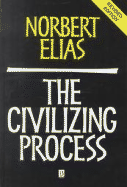
About this title:
The Civilizing Process stands as Norbert Elias's
greatest work, tracing the 'civilizing' of manners and
personality in Western Europe since the late Middle Ages,
and showing how this was related to the formation of states
and the monopolization of power within them.
The Germans
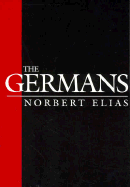
About this title:
The last major work by one of our century's most influential
social theorists, "The Germans" is a penetrating account of
German social development, from the seventeenth century to
the present. Enhanced by his deep understanding of other
Western European nations, Norbert Elias's incisive analyses
of nationalism, violence, and the breakdown of civilization
will be an indispensable resource for those interested in
modern European history and sociology and in European
studies.
What is Sociology?

About this title:
"What is Sociology?" presents in concise and provocative
form the major ideas of a seminal thinker whose work --
spanning more than four decades -- is only now gaining the
recognition here it has long had in Germany and France.
Unlike other post-war sociologists, Norbert Elias has always
held the concept of historical development among his central
concerns; his dynamic theories of the evolution of modern
man have remedied the historical and epistemological
shortcomings of structuralism and ethno-methodology. "What is
Sociology?" refines the arguments that were first found in
Elias' massive work on the civilizing process, in which he
formulated his major assertions about the interdependence of
the making of modern man and modern society. It is Elias'
contention that changes in personality structure -- embodied
in phenomena ranging from table manners and hygiene habits
to rites of punishment and courtly love -- inevitably
reflect and mould patterns of control generated by new
political and social institutions. Elias' rejection of a
dichotomy between individual and society, and his use of
psychoanalysis, political theory, and social history, help
restore a fullness of resource to sociology.
Loneliness of the Dying
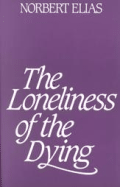
About this title:
Originally published in 1985, this is a short meditation by
a great old man on people relating to other people who are
dying, and the need for all of us to open up.
The Established and the Outsiders
By Norbert Elias and John L. Scotson
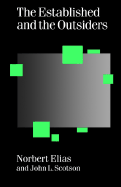
About this title:
The Established and the Outsiders is a classic text from two
major figures in the world of sociology. Developing a series
of theoretical concepts essential to the understanding of
such sociological configurations as ethnic and gender
relations, Norbert Elias and John L. Scotson analyze the
effects and experiences of those within--and without--the
boundaries of traditional society. Through the evaluation of
community, the authors apply microcosmic study to
macrocosmic philosophy and planning; mutual identification
and functional democratization are among the topics
discussed in this context. Offering its first English
language introduction, the second edition of this enduring
work remains requisite reading for students and scholars of
social theory, sociology, and anthropology.
Society of Individuals
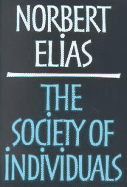
About this title:
Originally published in 1991, this book consists of three
sections. The first, written in 1939, was either left out of
Elias's most famous book, The Civilizing Process, or was
written along with it. Part 2 was written between 1940 and
1960. Part 3 is from 1987. The entire book is a study of the
unique relationship between the individual and society --
Elias's best-known theme and the basis for the discipline of
sociology.
The Norbert Elias Reader
by Norbert Elias, Stephen Mennell and Johan
Goudsblom (ed)
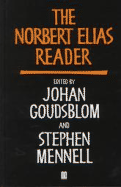
About this title:
Norbert Elias (1897-1990) is now recognized as one of the
most profound sociological thinkers of the 20th century,
although he gained international recognition only toward the
end of his very long life. This volume, organized
chronologically, shows how Elias's thought developed over
time--from a focus on the development of society in Western
Europe to an even more encompassing view of human history as
a whole.
On Civilization, Power, and Knowledge:
Selected Writings
by Norbert Elias, Johan Goudsblom and Stephen
Mennell (editors)
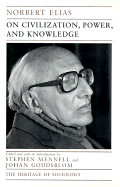
About this title:
Norbert Elias (1897-1990) is among the great sociologists of
the twentieth century. Born in Germany, Elias earned a
doctorate in philosophy and then turned to sociology,
working with Max Weber's younger brother, Alfred Weber, and
with Karl Mannheim. He later fled the Nazi regime in 1935
and spent most of his life in Britain. He is best known for
his book "The Civilizing Process", wherein he traces the
subtle changes in manners among the European upper classes
since the Middle Ages, and shows how those seemingly
innocuous changes in etiquette reflected profound
transformations of power relations in society. He later
applied these insights to a wide range of subjects, from art
and culture to the control of violence, the sociology of
sports, the development of knowledge and the sciences, and
the methodology of sociology. This volume is a carefully
chosen collection of Elias's most important writings and
includes many of his most brilliant ideas. The development
of Elias's thinking during the course of his long career is
traced, along with a discussion of how his work relates to
other major sociologists and how the various selections are
interconnected. The result is a consistent and stimulating
look at one of sociology's founding thinkers.
The Symbol Theory
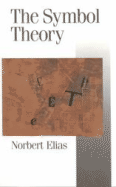
About this title:
Edited with an Introduction by Richard
Kilminster. "It transcends conventional disciplinary
boundaries--between the life sciences and the social
sciences, as well as between empirical science and
philosophy. . . . He displays a great sensitivity for
language, both as an object of study and as a means of
thought and expression. . . . [A] most ambitious book. . . .
Few readers will fail to be impressed by the breadth of
vision and the clarity of expression. For many, the book may
supply a welcome, undogmatic antidote to skepticism."
--Contemporary Sociology Norbert Elias, one of the prominent
figures in international sociology and social science, draws
together three central themes in The Symbol Theory. At the
first level, Elias introduces symbols in relation to
language, knowledge, and thought. He presents a fresh glance
into areas of inquiry normally associated with cultural
anthropology and semiology. Second, Elias focuses on symbols
that are also tangible sound-patterns of communication. And
finally at level three, he addresses theoretical issues
about the ontological status of knowledge, moving beyond
traditional philosophical dualisms such as subject/object
and idealism/materialism. The Symbol Theory extends Elias'
theoretical ideas into the boundaries of cultural and
physical anthropology on one side and evolutionary biology
on the other. In addition, he demonstrates the potential of
sociology as a unifying human science which pulls in data
from various disciplines--history, psychology, economics,
political science, and anthropology. Though Elias is
primarily a sociologist, his work is known across all the
social sciences. This volume is essential reading forall
those who have followed his earlier work and to students and
professors of social theory, communication, sociology,
anthropology, and general social science.
Dr.
Elwell's Home Page
©Frank Elwell
Send comments to [email protected]
.
|